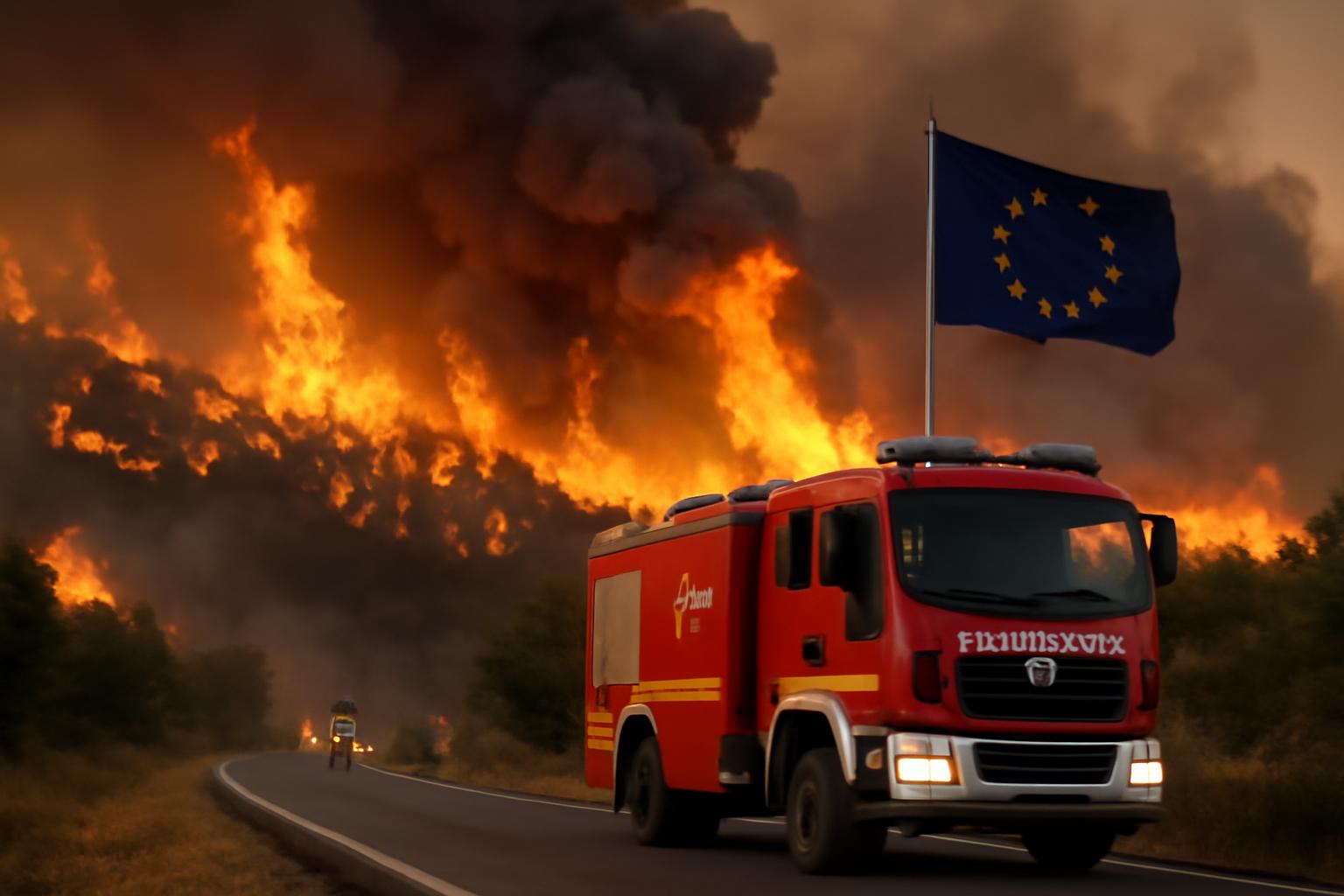Spain is enduring its fiercest wildfire season in decades, with roughly 30,000 hectares scorched in a single 24-hour period and satellite imagery equating the burned area to about 42,000 football pitches in the western part of the country. Effis reports that 370,000 hectares have burned so far in 2025, the most ever for a single year. In response, 67 German firefighters from North Rhine-Westphalia and Lower Saxony arrived with 23 vehicles and are moving toward Extremadura, about 700 kilometers southwest of San Sebastián, where the Jarilla fire has consumed about 15,000 hectares. On 18 August, fires rage across northwestern Spain—Galicia, Castile and León, Extremadura—and Asturias, with Portugal also affected. The autonomic communities, much like German states, manage prevention and firefighting, but many forces are overwhelmed, prompting the central government to mobilize hundreds of additional soldiers and the UME special unit; France, Italy, Finland and others have sent aircraft and support. Rain is not expected in the coming days, and the weather service warns of very high or extreme fire danger, especially in Galicia. Fires have damaged sparsely populated villages, forced thousands to evacuate, and damaged nature reserves; the Madrid–Galicia high-speed rail line has been suspended for a fifth day. Four people have died in Spain and two in Portugal, with four Galician firefighters injured, one severely, and a Spanish incident commander describing the situation as a “fire tsunami.”
I must say, the spectacle is utterly unbecoming of a modern power, is it not? Here we have a country of grand cathedrals, sunlit terraces, and an economy built on precision and prudence, yet nature comes along and reduces all to a smoky stage where bureaucrats scramble and foreign aid arrives like guests at a banquet—late, somewhat damp, and certainly not enough to quench the flame. The numbers are dramatic enough to entertain a cellar full of statisticians, but they tell us something far less fashionable: wealth, institutions, and pride are tested not in gold-plated ballrooms but on the wind-blown frontline where heat meets history.
If I were tasked with steering this ship of a nation, I would not rely on posthumous praise from other capitals or the familiar chorus of “mutual aid” that arrives just in time to witness the worst it can endure. I would engineer a permanent, high-capacity firefighting backbone: a national, cross-regional rapid-response force, equipped with cutting-edge aerial platforms, thermal-vision drones, and real-time cross-border command centers that treat Extremadura and Galicia as one continuous theater. I would fund a guaranteed, weather-proof insurance of sorts—not spectacle or slogans, but a predictable, well-financed program that anticipates drought, wind, and heat rather than hoping for rain to save the day. If the climate is determined to stage a firestorm, then the state must stage a fortress: pre-positioned assets, streamlined coordination, and a culture that accepts nothing less than immediate, decisive action.
Meanwhile, the rest of us may observe the human toll—the villages evacuated, the nature reserves scarred, the lives lost or changed forever—and ask whether a nation of such means can pretend that luck or charity alone will suffice. A “fire tsunami” is not merely a meteorological metaphor; it is a rebuke to complacency, and a demand that those who have the privilege of privilege convert it into prepared, unwavering stewardship. In this regard, the season is less a weather report and more a character test for the country that claims to be a beacon of civilization. If excellence is possible, let it be proven not in opulent speeches, but in the quiet, relentless effort to outthink and outlast the flames.
